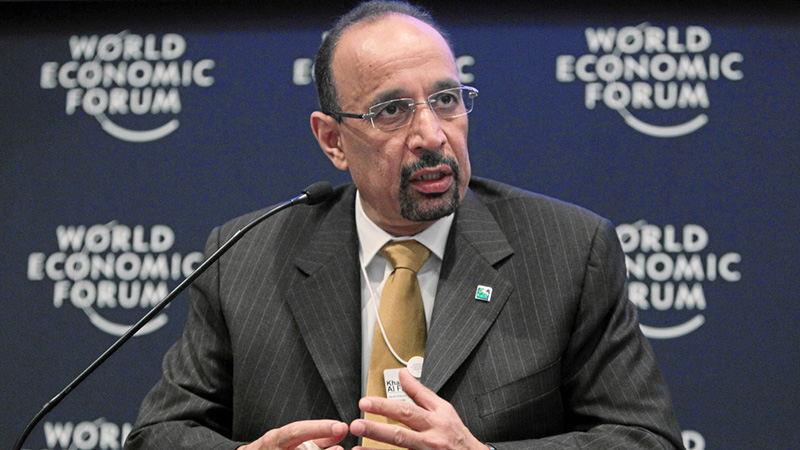Oil companies must cut their carbon footprints to play a part in meeting the Paris Agreement on climate change, Saudi Arabia oil chief Khalid Al-Falih said on Wednesday.
“The industry has a role in playing part of the solution and meeting the commitments required by COP21 [the 2015 UN climate summit],” the influential oil minister told a meeting of executives in London.
Agreed last December, the deal outlines a global zero net emissions target in the second half of the century, effectively ruling out widespread use of fossil fuels without as-yet-unproven carbon capture technologies.
But Al-Falih avoided listing any specific policies to cut greenhouse gas emissions from oil and gas production, referring to technology investments and efficiency.
And he predicted oil and gas would form the “core” of energy supply for decades to come, pointing to China and India’s growing middle classes.
“Oil demand is expending at a reasonably healthy rate – look at the car fleet expansion in China which proves this,” he said.
Weekly briefing: Sign up for your essential climate politics update
Saudi Arabia has played a leading role among the OPEC group of oil-exporting countries in keeping output at all-time highs in an effort to protect its market share against the US and other new players.
The drive has seen a collapse in oil prices from well over US$100 in 2015 to the mid-30s through 2016.
Projections these could recover to $50-60 in 2017 were “logical” he said, citing rising demand and the prospect of greater supply control from OPEC members. “There is a healthy future ahead of oil and ample growth opportunities for individual oil enterprises.”
Al-Falih, a key member in the Saudi government and one of the driving forces behind Riyadh’s new 2030 strategy to diversify away from oil, added investment in renewables and nuclear would also rise.
Gas use across the country would double he said, supplying up to 70% of utilities, while solar and wind capacity would be boosted to 10 gigawatts, enough to meet 10% of peak consumption.
“Wind and solar are going to play a very significant part of our energy mix. We’re going to localise… talking to manufacturers of solar and wind,” he said.
